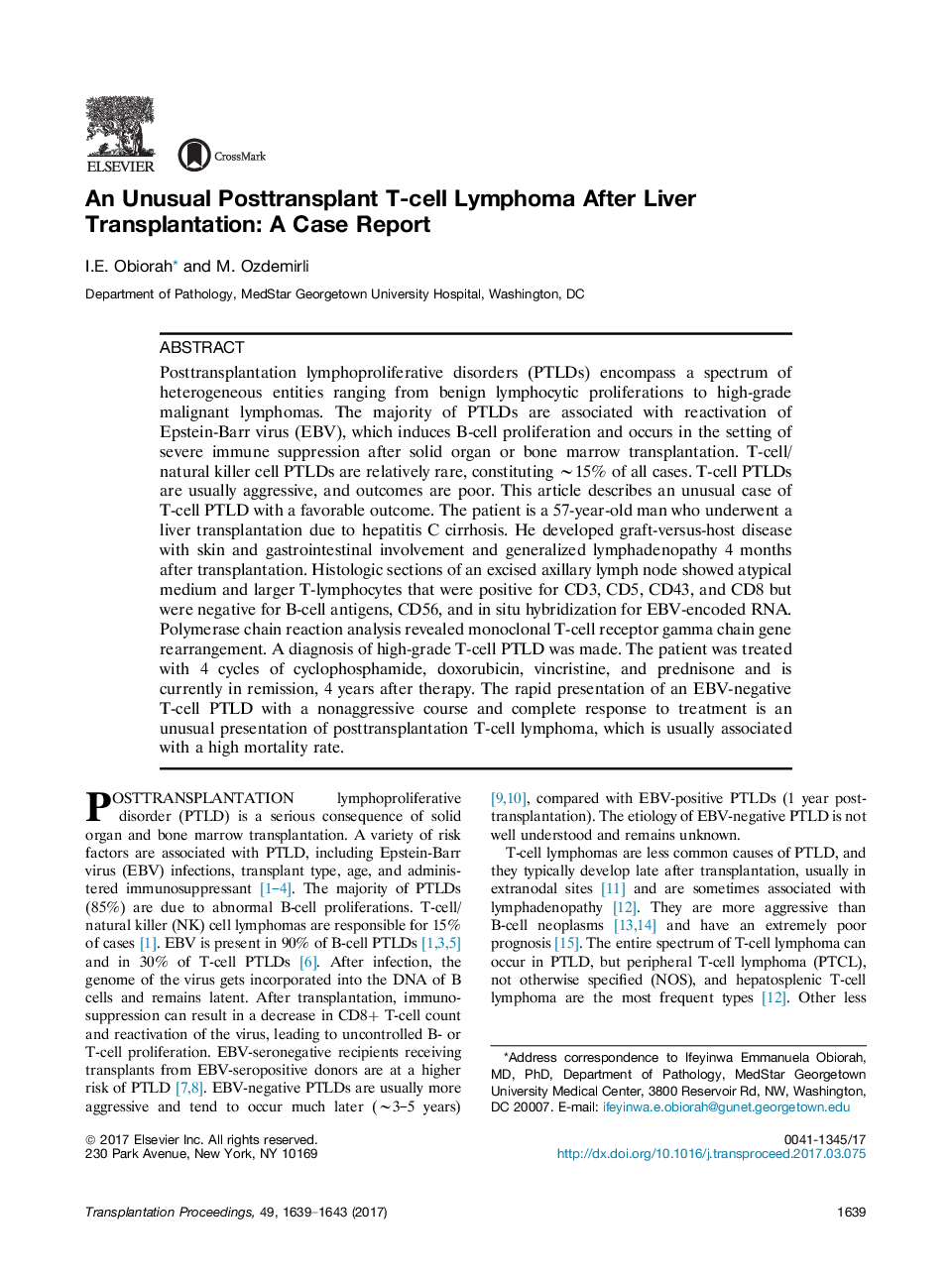| Article ID | Journal | Published Year | Pages | File Type |
|---|---|---|---|---|
| 5728751 | Transplantation Proceedings | 2017 | 5 Pages |
â¢T-cell post-transplant lymphoproliferative disorders (PTLDs) are an uncommon complication of solid organ transplantation, and they are usually aggressive with a poor outcome.â¢A 57-year-old man with graft-versus-host disease after liver transplantation developed generalized lymphadenopathy, which was discovered to be an Epstein-Barr virus-negative monomorphic T-cell PTLD according to biopsy results. The diagnosis was made after consultation with 2 different institutions. The entity was difficult to classify due to its unusual morphology and early presentation.â¢Unlike most Epstein-Barr virus-negative PTLDs, this T-cell lymphoma responded completely to therapy, and the patient is currently in remission 4 years after treatment.â¢Patients who develop generalized lymphadenopathy after solid organ transplantation should be followed up closely because they are at an increased risk of neoplastic transformations.
Posttransplantation lymphoproliferative disorders (PTLDs) encompass a spectrum of heterogeneous entities ranging from benign lymphocytic proliferations to high-grade malignant lymphomas. The majority of PTLDs are associated with reactivation of Epstein-Barr virus (EBV), which induces B-cell proliferation and occurs in the setting of severe immune suppression after solid organ or bone marrow transplantation. T-cell/natural killer cell PTLDs are relatively rare, constituting â¼15% of all cases. T-cell PTLDs are usually aggressive, and outcomes are poor. This article describes an unusual case of T-cell PTLD with a favorable outcome. The patient is a 57-year-old man who underwent a liver transplantation due to hepatitis C cirrhosis. He developed graft-versus-host disease with skin and gastrointestinal involvement and generalized lymphadenopathy 4 months after transplantation. Histologic sections of an excised axillary lymph node showed atypical medium and larger T-lymphocytes that were positive for CD3, CD5, CD43, and CD8 but were negative for B-cell antigens, CD56, and in situ hybridization for EBV-encoded RNA. Polymerase chain reaction analysis revealed monoclonal T-cell receptor gamma chain gene rearrangement. A diagnosis of high-grade T-cell PTLD was made. The patient was treated with 4 cycles of cyclophosphamide, doxorubicin, vincristine, and prednisone and is currently in remission, 4 years after therapy. The rapid presentation of an EBV-negative T-cell PTLD with a nonaggressive course and complete response to treatment is an unusual presentation of posttransplantation T-cell lymphoma, which is usually associated with a high mortality rate.
